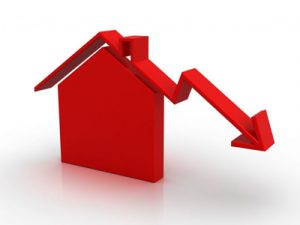Quote of the Week
“Record-low mortgage rates, rising home prices, strong auction clearance rates, limited housing supply, improving access to home loans and now financial market volatility are encouraging Aussies to return to the property market.”
CommSec’s senior economist Ryan Felsman
Banks Pass On Official Cash Rate

The Reserve Bank has reduced the official cash rate by 0.25 percentage points to a new low of 0.5%, with the major banks moving swiftly to pass on the cut. The move will provide further impetus to residential property markets, which are providing security and solidity as the sharemarket struggles with the impact of the coronavirus.
RBA Governor Philip Lowe says: “It is too early to tell how persistent the effects of the coronavirus will be and at what point the global economy will return to an improving path.
“Policy measures have been announced in several countries, including China, which will help support growth. Inflation remains low almost everywhere and unemployment rates are at multi-decade lows in many countries. In most economies, including the United States, there is an expectation of further monetary stimulus over coming months. “The coronavirus outbreak overseas is having a significant effect on the Australian economy at present, particularly in the education and travel sectors. The uncertainty that it is creating is also likely to affect domestic spending.”
Multi-speed Recovery Drives Markets
Australia’s property market recovery is unfolding at varying speeds across different markets, say property valuers Herron Todd White. Many of the key property markets are beginning to recover, or are rising.
“There’s a broad demographic range across Australian home buyers. Some buyers are traditional while others are evolving – but all tend to operate at different speeds,” says Shaun Thomas, a director of HTW.
Low interest rates and government incentives have encouraged first-home buyers into the market, though this demographic is unlikely to be buying in Sydney’s expensive inner suburbs.
Brisbane tends to draw first-home buyers, down-sizers and families seeking better value than high priced Sydney. Demand remains strong in Hobart, where there is increasing interest from empty-nesters and “climate changers”, typically former Queensland and West Australian residents wanting to escape the heat.
Technical advances allowing people to work from home means young professionals, new families and empty-nesters tend to gravitate towards low maintenance high-rise units along transport corridors in Melbourne.
Capital City Prices Trending Up
All eight capital cities and all of the state regional markets recorded house price growth in February and in the latest quarter, the latest data shows.
CoreLogic says six capital cities have now recorded annual growth, with the combined capital city increase measuring 7.3%.
Sydney and Melbourne lead the way, both recording an 11% annual increase. Sydney’s median house price is now $875,000, while Melbourne’s is $690,000.
While there is a large variance from region to region and across the product types, all capital cities (including the former strugglers Perth and Darwin) are showing an upwards trajectory, demonstrating a geographic broadening in the recovery.
Brisbane, where prices have increased 2% in the latest quarter, remains affordable with a median house price of $505,000 while Hobart is not far behind at $490,000.
Overall, housing values in Melbourne, Brisbane, Canberra, Hobart and Adelaide are tracking at record highs while there is evidence that the downturn is over for Perth.
iPhones Red Flag on Credit Check
Spending on the latest iPhone, Uber Eats and Netflix can be detrimental to your home loan application.
MyCRA Lawyers chief executive Graham Doessel says banks scrutinise every detail of a buyer’s spending when assessing their home loan application and even a credit inquiry from four years ago could be a red flag.
When you apply for a new phone the telco will do a credit check, which shows up on your file, he says.
“Once you have a few of these in a short period on your credit file, you run the risk of being rejected outright for a home loan,” Doessel says.
“Some lenders treat buy-now-pay-later services the same as payday lenders, which means an automatic rejection.”
Telcos are one of the most common causes of defaults on a credit file, he says. While a default won’t necessarily rule you out of getting a home loan, your bank may see you as a risk and apply a higher interest rate, which may price you out of the market.
Digital Banking Reaches Home Loans
Fintech says Neobanks (or digital banks) are set to become the new way of banking.
Because Neobanks operate entirely online, they do not have the costs associated with running bank premises and paying staff, so they are more cost effective and can offer better interest rates.
The guidelines around how these organisations will operate are still being formed, but the Office for the Information Commissioner has released privacy safeguards as to how the new players and established banks must obtain consent from customers before acquiring and sharing their data – which includes a customer’s financial position.
Sector lobby group Fintech Australia co-founder and chief executive of Athena Home Loans Nathan Walsh says that while open banking will not apply to mortgage products until the end of the year, he sees home loans as the “main game” for the regime because sharing of data will help customers access better deals and refinance.
“Inertia is a $10 billion disease in the mortgage market,” he says.








